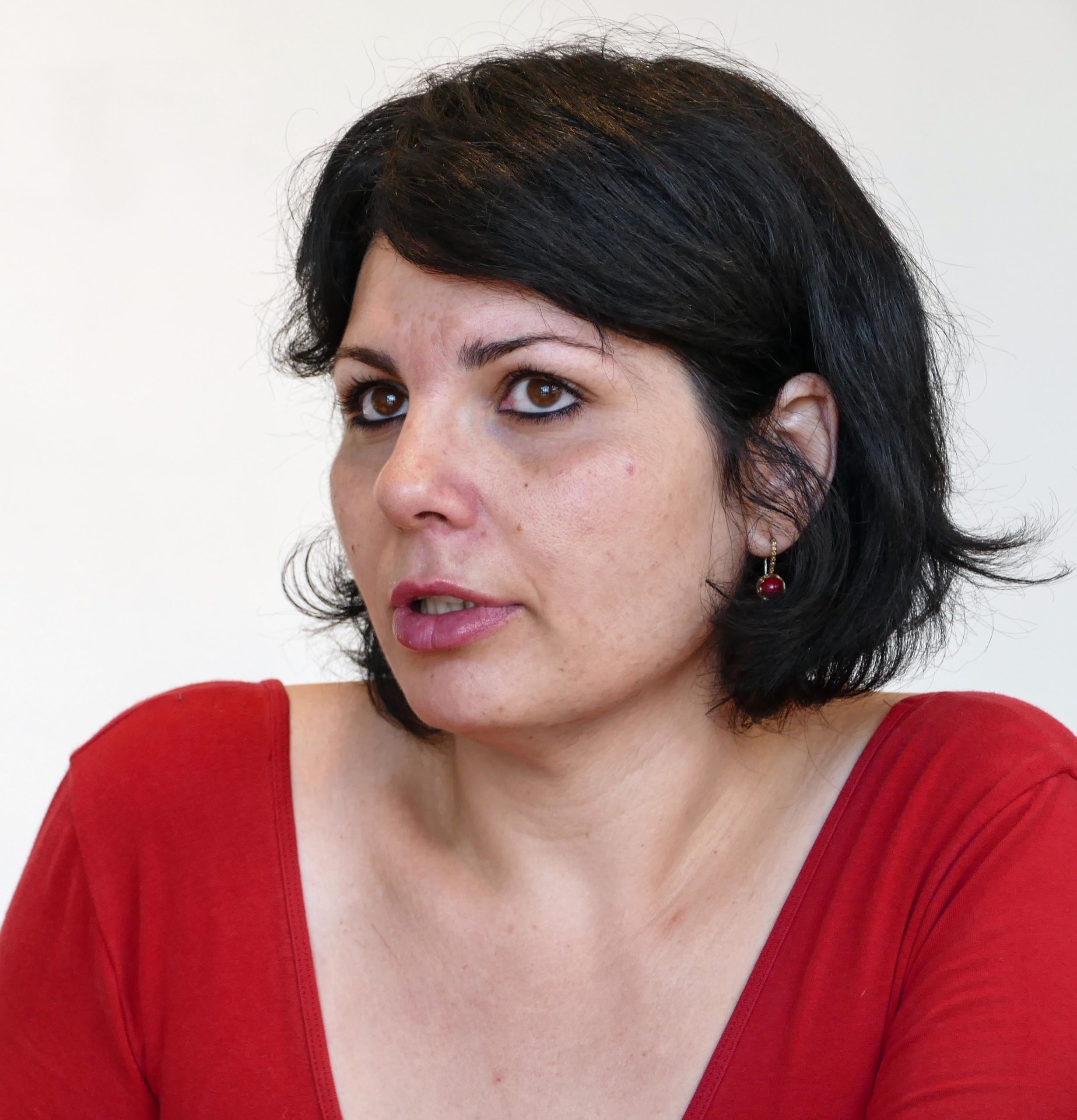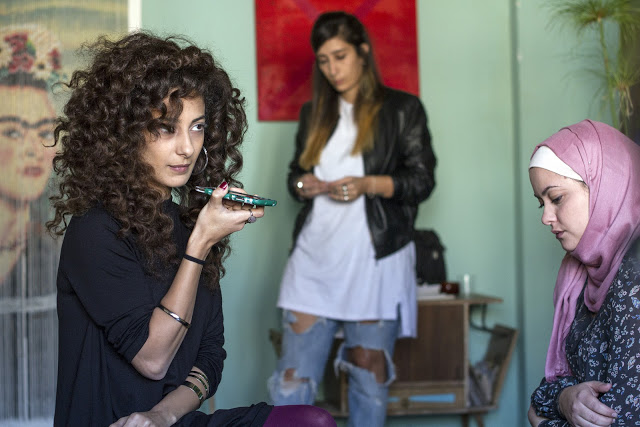
Meet Maysaloun Hamoud—Fearless Female, Palestinian Filmmaker— Director of “In Between”
The film’s true “in betweens” are three young women sharing a Tel Aviv apartment—the sizzling hot lawyer, the moody D.J., the modest head-scarved student. They’re all from somewhere else in Israel, in another world from their more traditional parents.
I interviewed Hamoud in New York City just after she made a quick call to her boyfriend, a Palestinian from Nazareth, a chef. (Quick cut to the “In Between” kitchen scene where the restaurant boss upbraids the D.J. working her day job for speaking Arabic. She throws her apron at him and quits.)
Quite simply, Hamoud sees film as a form of activism. As she told PopMatters’ Paul Risker, “Art has the power to change minds and changing reality starts with the changing of minds.”
Her commitment to film came after surviving clinical death in surgery. Her doctor told her, “You don’t come back without a purpose.” Before then, a Hebrew University graduate in Middle East history, she’d been teaching at a Palestinian girls’ school in East Jerusalem. After her near-death experience, she enrolled in film at the Minshar School of Art in Tel Aviv-Jaffa. She speaks of that first year as “really the beginning of the beginning.” That was 11 years ago.
Passion, hard work and fortuitous connections have propelled her forward. The producer of “In Between,” leading Israeli director-producer Shlomi Elkabetz, was Hamoud’s teacher in film school. Her first student film, “Shades of Light,” was scooped up by Carole Zabar, founder of the Other Israel Film Festival. Zabar, a friend of the father of the film’s star, brought Hamoud to New York for the screening. It was her first time receiving audience feedback, “When you get the first feeling of success, it just drives you,” she says.
Hamoud describes herself as “intuitively feminist” with growing awareness. Making “Shades of Light,” she didn’t see women as main characters. The lead is a suspicious husband, sneaking after his wife to see if she’s cheating on him. In fact, she’s leaving the house to study drawing.

A scene from the film.
Cut to “In Between,” where, Hamoud says, “Women’s solidarity is the important essence in my movie.” (She began creating the characters at the start of the short-lived Arab Spring, with its demands for women’s freedom.) Her politics are clear: “I am a Palestinian and I am a woman. I’m discriminated against as a Palestinian and I’m discriminated against as a woman. These struggles go together. If you don’t understand that, then you have a problem in going forward.”
When it comes to the male Jewish dominated Israeli film business, Hamoud says, “Every organization is basically the same system. The patriarchy, the discrimination, the salaries. Even if we are artistic people, it’s not changing the basic rules of what’s going on in society.”
Slow dissolve to “In Between” closing shot with the three women sitting together, determined to have choices in life.
No wonder the conservative patriarchs issued a fatwa against this Palestinian woman filmmaker. It wasn’t just the scenes of forbidden sex, alcohol and drugs. Far more dangerous is the way the film is empowering Palestinian women—and others—to demand their right to make choices.
See also: “This Director Got Death Threats. Her Work Will Open the Other Israel Film Festival Tomorrow.”
The views and opinions expressed in this article are the author’s own and do not necessarily reflect those of Lilith Magazine.



